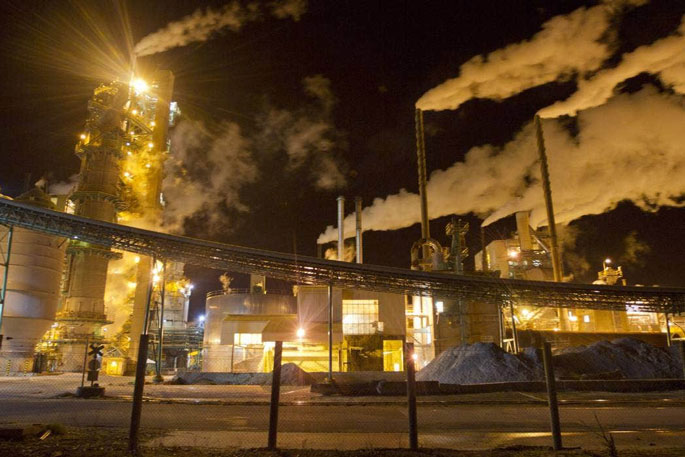The mayor of Kawerau says the town is unsettled to hear that up to 160 jobs could be on the line as staff consultations begin at Norske Skog's operations at Tasman mill.
Norwegian owned Norske began talking with staff on Wednesday about the results of a strategic review it began last September. But it declined to say what the review's conclusion was at this stage.
Mayor Malcolm Campbell says news that the mill's future is coming to a head was no surprise, but still sobering.
'The briefing they gave me was that things are not good in the newsprint industry, you don't have to be a rocket scientist to know that, it's a dying thing, and all of this from yesterday is no surprise to us, we've been expecting this for 20 years.
'But I think they're reckoning it's here, so we've got to be mindful of that and make plans.”
He says he has rung the Mayor of Whakatane Judy Turner as a courtesy, because the majority of the workers lived there.
Whakatane's own packaging mill is facing closure next month, with 210 jobs at stake, although discussions are underway with a possible buyer.
Campbell will not be drawn on where the staff, many of whom are skilled and well paid, might find alternative work if the mill closed.
However, he says it will have a big effect on knock-on industries like electrical contractors, truck drivers and tradespeople.
Kawerau, a small central North Island town of 7500 people, would feel the effects of any closure but it was also a growing town, with many retirees moving there for cheaper housing, Campbell says.
'We've been through all these downturns and banks closing and all that, and the population's gone up.”
Norske Skog says no final decision have been made and the key union on site, Etu, says it also wants to respect the consultation process by not commenting.
But David Turner, executive director of Sequal Lumber mill in Kawerau, says there is an air of weariness about the town and 'frustration” at lack of action from central government over years of under-investment in the wood industry.
Part of that frustration was due to the possibility the mill could be turned to other uses, but he felt that was unlikely to happen.
'What we've seen not just with this government but multiple New Zealand governments is we really fail in this area. Our bureaucracy is weak when it comes to strategic thinking and the impact is it affects communities like ours in Kawerau. We already have 62 per cent beneficiaries in our town.”
David Turner says Norske Skog is also one of his biggest customers, taking chips from his mill and wood pellets for its thriving Nature's Flame business.
Business has been so good lately, he has just put on a third shift and had about 100 staff. If the mill closed, he will be searching for replacement customers.
Norske Skog and other mills have also been highly critical high commercial power prices.
John Harbord, chairman of the Major Electricity Users Group MEUG, says prices have been high for three years and it seemed unlikely they could be blamed completely on low lake levels.
"People are renewing part of their hedges this year, and in a lot of cases they're being told their electricity price for their new hedge is going up to increase 100 per cent. The ability to insure yourself against high prices doesn't really exist any more."
He says Whakatane Mill has been "quite explicit" about how high power prices had played a part in its difficulties, NZ Steel had periodically stopped making production runs of some products, and Norske Skog had been operating only about half the time to avoid high spot prices.
"We know from talking to members that high electricity prices are causing a lot of hardship and there's only so long people can absorb those prices, and people have been absorbing them for three years now."
Figures out on Wednesday showed March quarter wholesale power prices - paid by the electricity suppliers and generators was up 28 per cent, and they were passing on prices that were up 17 per cent.



0 comments
Leave a Comment
You must be logged in to make a comment.